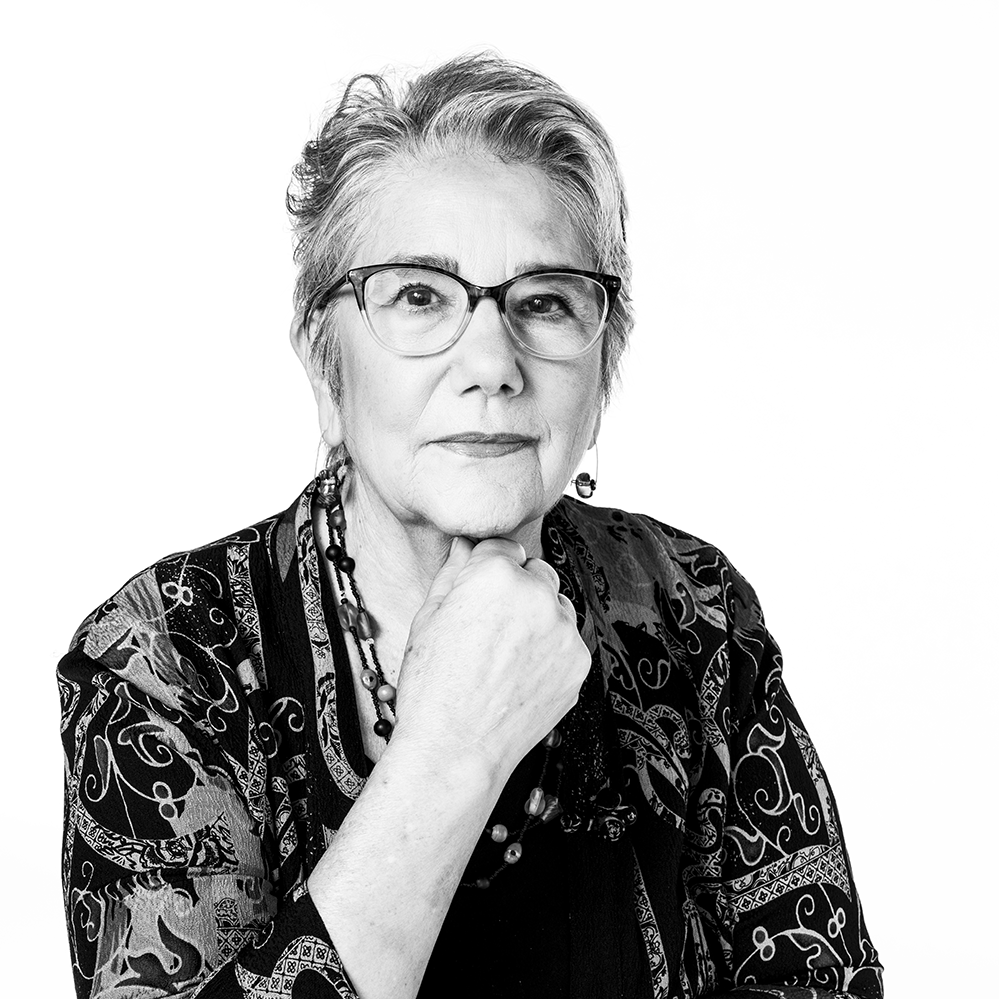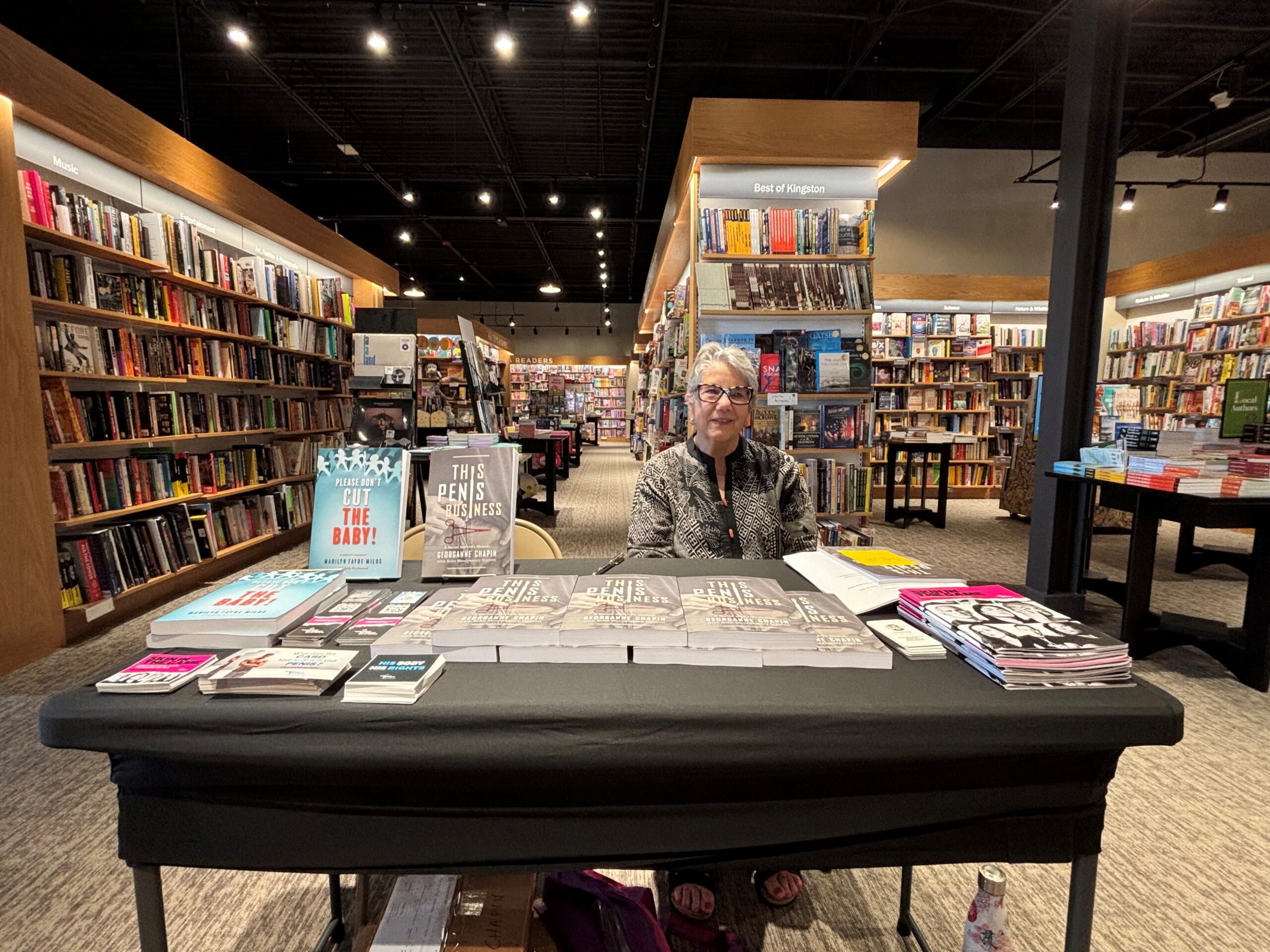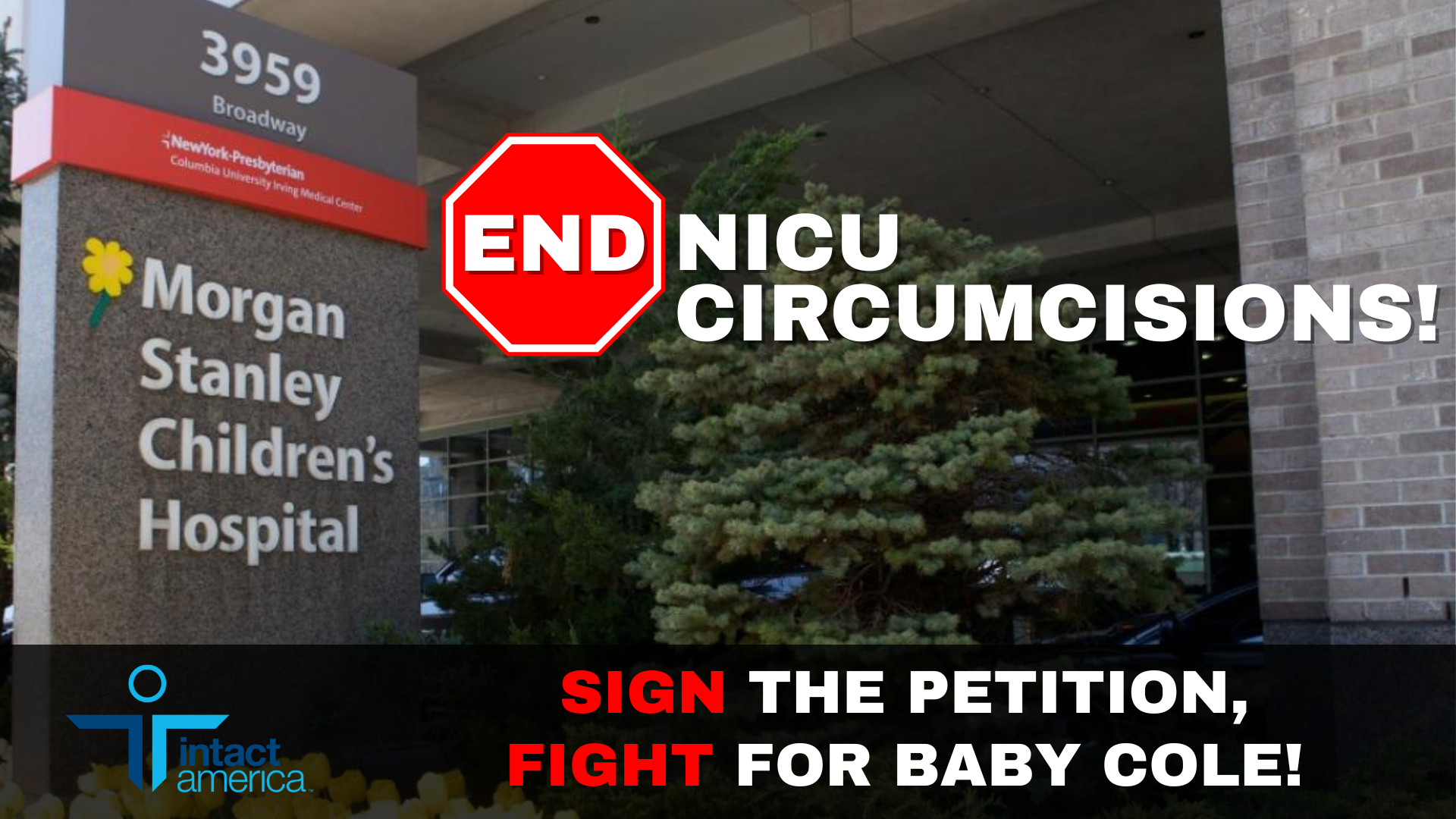Note: The following essay appeared on the op-ed page of the (Palm Beach, Florida) Sun-Sentinel on March 28, 2015. This version has been edited slightly for timeliness and for the audience of this blog.
The headlines have subsided, but Florida mother Heather Hironimus is in now in her seventh week of hiding to protect her son from his father, who wants to cut off the boy’s foreskin. A Palm Beach County judge has ordered her arrest. As Heather sat in captivity, just recently scores of intactivists gathered in Washington, DC to protest the removal of boys’ normal, healthy foreskins by U.S. physicians. A practice for decades accepted as the regular American thing to do has emerged as a landmark human rights concern.
Widely decried by physicians and ethicists throughout European and Commonwealth countries, circumcision is falling out of favor here as parents learn the facts. Meanwhile, as Denmark and other Scandinavian countries are considering whether to outlaw the surgery on minors altogether, U.S. physician organizations are redoubling their efforts to get the government to pay for it.
Adding to the mix are the ever-more-vehement voices of American men expressing outrage at having been robbed of their normal sexual anatomy – and their freedom of choice – when they were too young to consent.
Incongruously, the judge who ordered Heather’s arrest has said that, once jailed, she will stay there until she signs a consent form for her son’s unnecessary surgery.
The human rights movement against infant and child circumcision relies largely on the principle of informed consent. Arising from revelations of horrific medical experiments inflicted by Nazi doctors on concentration camp prisoners during World War II, this principle requires that before any medical procedure can be administered, the patient must understand its risks and benefits, be told of less invasive alternatives (including doing nothing), and freely agree to it. For children, parents may give “proxy” consent – but only if treatment is medically necessary.
In addition to the fact that “consent” cannot be compelled, “routine” circumcision fails these tests. The foreskin is not a birth defect; it’s a normal body part, and it plays protective and pleasure-enhancing roles. Most of the world’s men are intact, and suffer no ill effects. In fact, despite fear-mongering by a medical establishment that peddles this infant surgery to two million American parents a year, European nations, with circumcision rates near zero, have the same or lower rates of urinary tract infections and sexually transmitted diseases (including HIV) as the United States, where most men have been circumcised.
Heather Hironimus became informed and declined to consent to her son’s surgery, because it’s not needed, it’s painful, and it will put him at risk for bleeding, infection and other complications. Her reasons are backed up by the opinion of a respected urologist who examined the boy and testified that there’s nothing wrong with him.
If Heather’s child were a girl, she would be protected by federal and state law from anybody tampering with her genitals. Heather in Florida and those who come back to Washington to demonstrate every year are asking for the same justice for American boys.
Georganne Chapin
April 5, 2015








Bryan Johnson
April 5, 2015 8:40 pmThank you very much Georganne, and thanks also to the Sun-Sentinel in Palm Beach, Florida for printing it. Excellent, let’s hope that more papers across the U.S. and Canada will get on board.
Karl Hegbloom
April 5, 2015 10:08 pmI bet that if you search the Florida statutes for the words “Ram Truck”, “Volkswagon”, “Buick”, or “Cheverolet”, you’ll find no laws mentioning them. Can you thereby conclude that it’s not illegal to steal an automobile in Florida? Obviously there are general purpose laws that prohibit the theft of anyone’s high value property. Lawmakers can not list every possible item that could get stolen. Likewise, the laws that prohibit assault, battery, or mayhem — defined as deliberate infliction of injury causing permanent disfigurement or permanent loss of normal function — could not possibly list every part of the body that could be injured, nor every possible weapon or mode of injury that might cause mayhem. A general purpose law is in place that covers it.
So a search of the statutes for the word “circumcision” will probably not lead to a specific or private law that prohibits that particular form of mayhem caused by sexual battery. But certainly there must be at least one general purpose law in the statutes that can be applied to prosecute perpetrators of infant genital mutilation surgery. I think that Intact America needs to stop giving the impression that it’s not a crime to amputate the prepuce from male children. There should be no congressional debates concerning whether or not to fund it because clearly Medicaide must not fund illegal malum in se mutilations of childrens genitals.
By this reasoning, I think that the federal FGM law should be repealed. It actually weakens the penalty that would apply under laws that preexisted it’s entry onto the statutes. In every state there are laws against sexual battery. The penalty that applies under those laws is more severe, rightfully and properly — don’t change them — than the penalty prescribed by the federal FGM law. I also believe that the principle of “strict liability” must be applied to these crimes; that is, it is not necessary to prove intent or mens rea, but only that the perpetrator committed the primary features of the actus reus. Torturing children and inflicting permanent harm is clearly unlawful and rightfully so. Who can argue with that? No judge has any legitimate authority to order that such a thing be done to a child.
I also suspect that this is the real reason why the AMA does not want any new laws passed to “outlaw circumcision”. It’s already illegal under existing laws and it’s not righteous to weaken the penalty that applies under those existing laws by passing new laws that more specifically address circumcision. Nor is it acceptible to provide past perpetrators with an ex post facto defense strategy. They deserve to go to prison for what they did to us.
Gianluca
April 6, 2015 4:09 pm“I also suspect that this is the real reason why the AMA does not want any new laws passed to “outlaw circumcision”. It’s already illegal under existing laws …”
I doubt that this is the real reason. Arizona explicitly banned FGM last year. The reason is more likely to be that circumcision is deeply entrenched in American culture. Politicians rarely have the guts to change things in society. This is because they fear of not being elected or re-elected. See for example Bill de Blasio’s repeal of the consent form to practice MBP. You simply cannot rely on politicians. Big social changes come from within society.
Karl Hegbloom
April 6, 2015 4:29 pmBut politicians become popular by selecting good ideas to champion that a lot of people are aligned with. I think that it’s pretty obvious that a lot of people are going to be aligned with protecting the human rights of children. Like I said the reason that they’re passing laws to outlaw FGM is to weaken the sentence that would’ve applied under existing laws. We should not let them sneak that past us and defraud even more people. There is no valid consent for things that harm a child like that anyway, so why make there be a consent form? Poise.
Gianluca
April 6, 2015 7:21 pmThe problem is that there are also a lot of people who are aligned with protecting the parental wish to cut the genitals of their (male) newborns. I hear it all too often “it’s a parental choice”. I think that education is the very first step. But it’s hard, because I feel that it’s a taboo topic in America.
Karl Hegbloom
April 5, 2015 10:45 pmPS: The right to bodily integrity is an inalienable right that is certainly high amoung the unenumerated rights reserved to the people by the constitution. It is such a fundamental right that they did not think to list it. No judge has any legitimate business ordering that such a thing be done to a child.
Keep me, O LORD, from the hands of the wicked; preserve me from the violent men; who have purposed to overthrow my goings. (Psalm 140:4)
Karl Hegbloom
April 5, 2015 11:49 pmHomework assignment: Learn about Title 18 U.S.C. S241 and S242, then Title 42 U.S.C. S14141. Then think about the idea that the right to bodily integrity is a fundamental and inalienable right, and how the above laws can be applied. The federal prosecutor in your area might be someone to write a letter to about this. Also, the FBI has a task force for sex crimes involving children. It’s their duty.
Marilyn Milos, RN
April 6, 2015 12:59 pmThank you, Georganne, for protecting the rights of all infants and children to genital autonomy. Thank you, too, for sending nearly a thousand letters to Floria pediatric urologists, explaining Chase’s right to be protected from amputation of a normal body part, his foreskin, which he would prefer to keep. Your updates on various legal cases and the work of Intactivists are very informative and helpful!
Bryan
April 6, 2015 10:08 pmI accidentally came across another Florida case, back in late January or early February of this year, where an uncle, Larry Leroy Floyd, tried to amputate his 20-month old nephew’s foreskin with a kitchen knife. I don’t know if he was successful or not. My guess is that they probably finished the job at the hospital. I am concerned that they will argue that the boy didn’t suffer any long-term harm and will let the uncle off with only a slap on the wrist. Are there any intactivists putting pressure on this case to see that justice is done?
Gianluca
April 6, 2015 11:40 pmThere is a big difference between the case that you mention and Heather’s. Floyd (who also has a troubled history) was arrested for attempting to amputate his nephew’s foreskin. In Heather’s case it’s the reverse. The mother is threatened with arrest for trying to protect her son whereas it’s the father who should be arrested for attempting to hire a surgeon to amputate his son’s foreskin.
Karl Hegbloom
April 7, 2015 12:02 am“Attempting to hire a surgeon…” == “soliciting for conspiracy to commit aggravated sexual battery”. It is not about the parents rights, but about the child’s, and those of the man he will grow up to be. It’s his body and the choice is obvious. Nature’s design is perfect.
Tom Arnold
June 29, 2015 3:03 amSo, if one reason why you’re against circumcision is the baby doesn’t want it, what are your thoughts on abortion? After all, shouldn’t the baby be able to choose if it lives or dies?
Gianluca
August 25, 2015 4:31 pmThe mother’s life needs to be protected, too. She needs to be able to carry the baby inside her body. It’s about the body of the mother. Circumcision has nothing to do with the body of the mother but only with the body of the child. Circumcision is not a decision that needs to be taken. For the parents, it’s just a cosmetic choice.
Karl Hegbloom
August 25, 2015 4:35 pmGianluca, it is much more than merely “cosmetic”. Please read: http://cirp.org
Gianluca
August 25, 2015 7:35 pmI meant to say that most parents perform it for cosmetic reasons. It’s definitely not cosmetic for the child.
Gianluca
August 25, 2015 7:39 pmI know it’s delicate. I noticed that the facebook accounts “ChasesGuardians” and “SavingChase” and the website savingchase.org have been blocked. I hope that this to Heather’s and Chase’s advantage. A lot of us are now in the dark but we keep praying.
Gianluca
September 27, 2015 12:18 amChasesGuardians Facebook page is back!
https://www.facebook.com/ChasesGuardians